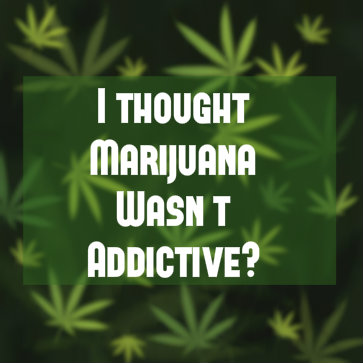Marijuana Withdrawal Eased By Sativex
Like people addicted to a range of other substances, people addicted to cannabis (marijuana, hashish or hashish oil) can develop symptoms of withdrawal when their brains don’t receive the expected amount of the drug. The presence of significant withdrawal symptoms can potentially stop a habitual cannabis user from successfully discontinuing his or her drug intake. In a study published in March 2014 in the American Medical Association journal JAMA Psychiatry, researchers from several Australian institutions investigated the potential effectiveness of a multiple sclerosis medication, called nabiximols (Sativex), as a treatment for people going through cannabis withdrawal. Nabiximols is derived from certain types of cannabis plants.
I Thought Marijuana Wasn’t Addictive?
 The American Psychiatric Association acknowledges cannabis withdrawal as a distinct and diagnosable mental health condition. People going through this form of drug withdrawal can develop symptoms that include a prominent urge to consume more cannabis, increased levels of anxiety, an unusually agitated or irritated mental state, a reduced ability to fall asleep or stay asleep and a reduced interest in food. As a rule, doctors consider officially diagnosing these symptoms when they substantially impair the day-to-day functionality of affected individuals or produce a notable decline in mental/emotional well-being. As of early 2014, there are no medications available in the U.S. designed to treat people affected by cannabis withdrawal.
The American Psychiatric Association acknowledges cannabis withdrawal as a distinct and diagnosable mental health condition. People going through this form of drug withdrawal can develop symptoms that include a prominent urge to consume more cannabis, increased levels of anxiety, an unusually agitated or irritated mental state, a reduced ability to fall asleep or stay asleep and a reduced interest in food. As a rule, doctors consider officially diagnosing these symptoms when they substantially impair the day-to-day functionality of affected individuals or produce a notable decline in mental/emotional well-being. As of early 2014, there are no medications available in the U.S. designed to treat people affected by cannabis withdrawal.
Nabiximols
Nabiximols is an oral spray chemically extracted from flowers harvested from a cannabis species known as Cannabis sativa. Rather than using plants grown through usual methods (which can have highly varying amounts of THC and other active ingredients), manufacturers of the medication use plants cloned in tightly controlled conditions. Compared to the THC derived from smoking cannabis, the THC contained in nabiximols produces its drug effects more slowly and also reaches a lower overall peak inside the bloodstream. Still, the medication has a fairly rapid impact and typically triggers noticeable effects in 15 to 40 minutes. Together, these properties make nabiximols a potential option for treating people affected by the autoimmune nerve disorder multiple sclerosis. As of 2014, the medication is not available in America; however, Canada and several European countries have approved its use. Currently, pharmaceutical companies are seeking approval for use of the medication in the U.S. as a treatment for certain forms of cancer-related pain.
Potential Effectiveness
In the study published in JAMA Psychiatry, researchers from the University of Sydney, the University of New South Wales and several other Australian institutions used a monthlong project to assess the effectiveness of nabiximols as a treatment for the symptoms of cannabis withdrawal in people affected by cannabis dependence/addiction. Half of the 51 participants in this project received the medication for six days; the other half received a placebo that mimicked the appearance of nabiximols for the same amount of time. Four weeks later, the researchers conducted a follow-up examination of each participant in both the nabiximols group and the placebo group. This examination included a test (called the Cannabis Withdrawal Scale) designed to measure the intensity of withdrawal symptoms, as well as assessments of such things as length of stay in a treatment program, involvement in cannabis use after going through withdrawal and experiences with cannabis-related harm.
After comparing the two groups, the researchers concluded that use of nabiximols does contribute substantially to the general reduction of withdrawal symptoms in physically dependent cannabis users. Specifically, the medication helps lower the intensity of cannabis cravings and ease the impact of the mood alteration commonly associated with cannabis withdrawal. In addition, nabiximols use has a smaller but detectable impact on the severity of several other withdrawal symptoms. Compared to the study participants who did not receive nabiximols, the participants who received the medication also stayed in treatment longer during the project’s initial phase.
The authors of the study published in JAMA Psychiatry note that nabiximols apparently only helps extend participation in cannabis treatment during its active use. Once that use came to an end, the individuals who received the medication did not stay in treatment any longer than the individuals who received a placebo. All told, the study’s authors believe that their findings support the potential usefulness of the medication as a cannabis withdrawal treatment and point toward a need for additional research.



